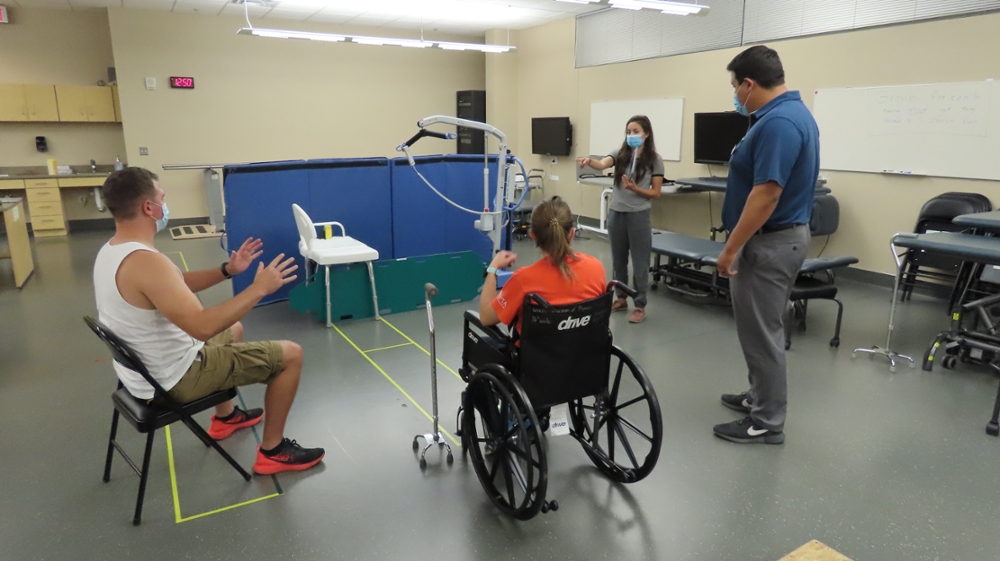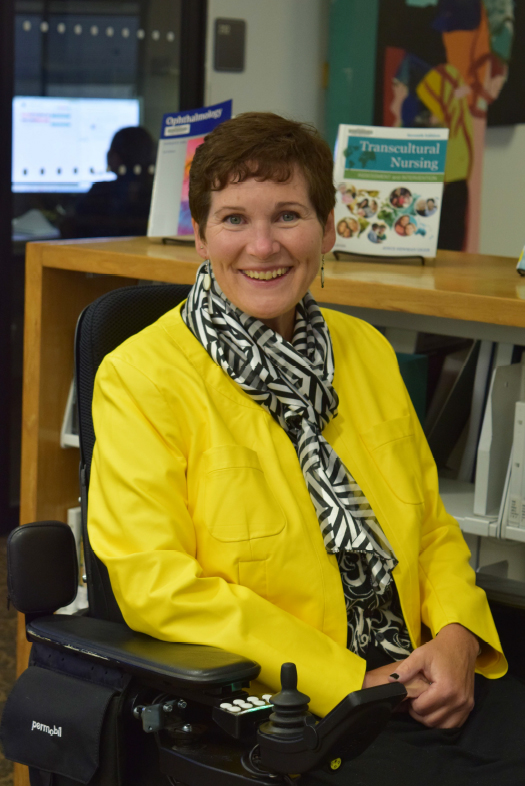Preparing for Disaster: UNM Hospital Participates in Region-Wide Emergency Training

Disability Heritage Month
HSC Office for Diversity, Equity & Inclusion Offers Online Presentations
Disability Heritage Month, the first observance of its kind at The University of New Mexico Health Sciences Center (HSC), will feature three virtual presentations starting on Thursday, Oct. 21.
 The official national name of the month that raises awareness around disability is called Disability Employment Awareness Month. The HSC’s Office for Diversity, Equity & Inclusion (DEI) decided to encompass a broader meaning of disability awareness by calling it Disability Heritage Month, says Ingrid Hendrix, MLIS, division head for Research, Education and Clinical Services at Health Sciences Library & Informatics Center.
The official national name of the month that raises awareness around disability is called Disability Employment Awareness Month. The HSC’s Office for Diversity, Equity & Inclusion (DEI) decided to encompass a broader meaning of disability awareness by calling it Disability Heritage Month, says Ingrid Hendrix, MLIS, division head for Research, Education and Clinical Services at Health Sciences Library & Informatics Center.
Hendrix has worked for UNM for 20 years, and is a member of the DEI’s Inclusion Excellence Council (IEC), which is organizing three online presentations for Disability Heritage Month.
The virtual presentations are slated to begin with “Disability Culture” on Oct. 21 at noon.
The other two are: “Integrating Disability into Graduate Health Sciences Curricula: Three Perspectives” on Oct. 26 at 5 p.m., and “Employment Experiences of People With Disabilities During COVID-19 Based on the After-Action Report: COVID-19 and Disability” on Oct. 28 at noon.
All presentations are open to the public. To register and for more information, visit the Disability Heritage Month webpage.
Hendrix, who uses a motorized wheelchair, has taught a class for the last several years to medical, nursing and occupational therapy students on caring for people with disabilities, and how to interact with people with disabilities. She says people feel comfortable asking her questions because of her visible disability, though, she adds, some disabilities are invisible.
“I've been very interested in advocating for people with disabilities, not only patients but also students who were going into the health professions or in the health professions,” Hendrix says.
One session will feature Hendrix, Eric Kruger, an assistant professor in the Division of Physical Therapy, and Cori Poffenberger, MD, an assistant professor in the Department of Emergency Medicine who recently came to UNM from Stanford University, which has a robust curriculum on people with disabilities. They will be talking about integrating education on disabilities in the classroom during the presentation, Hendrix says.
Places of employment should reflect the population they’re serving, and another presentation, “Disability Culture,” is about how disability becomes a culture through one-on-one interaction.
“Most people don't think of people with disabilities as having a culture, because it usually happens to an individual, like maybe they're in a car accident or something, and so it's not really like (an ethnic culture),” Hendrix says. “But people with disabilities really connect with one another, and we've built a strong cultural identity.”
Disability is the silent ‘D’ in diversity, she adds. “There's been very little relating to people with disabilities in any of these kinds of conversations. So, I'm excited that this was on the IEC’s radar to put this together and have something related to disability, and I think going forward, we will do this kind of celebration that hopefully in future years, we can have even more programming.”
People can experience disability at any point in their lives, whether it’s due to a broken arm or something more serious, Hendrix says.
“I think it's important for people to understand that it's just a part of living, and the longer you live, the more likely you will have some kind of disability,” she says. “It's not something to be embarrassed about. People don't want to talk about it or they feel uncomfortable around it. I think the more visible it is and the more people talk about it and feel comfortable with it, the more inclusive it will become.”
The third presentation will feature a panel discussion led by Lisa McNiven, a disability specialist with the Governor’s Commission on Disability.
For those unable to tune into the presentations, you can still make a difference, Hendrix says.
“One of the big things to me is treating people with disabilities like everybody else,” she says. “I think one of the things I run into a lot is that people feel awkward and uncomfortable and they don't know what to say or where to look, and so they just ignore you. We're the same as you, we just do things a little bit differently.”
Hendrix suggests some additional ways to honor people with disabilities:
- Don’t park in a spot reserved for a disabled person.
- Don’t pet service dogs.
- Advocate for accessibility to businesses. For example, if there’s a restaurant you like and it’s not wheelchair accessible, talk to the management about changing that.